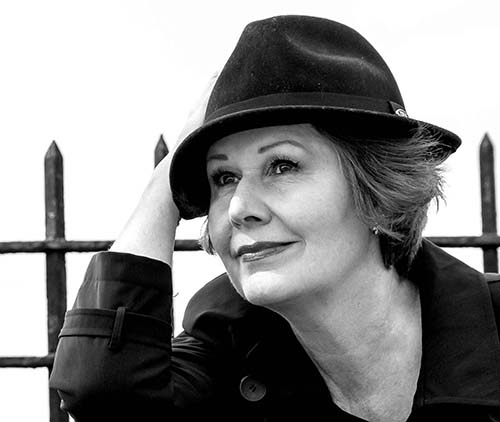Don’t Tell Mama, NYC, March 24, 2024
Reviewed by Bart Greenberg

Photo: Takako Harkness
In her search for the song “Humphrey Bogart” that she had heard in a cabaret show, Amy Beth Williams discovered an album featuring pianist William Bolcom and singer Joan Morris that paid tribute to songwriters Jerry Leiber and Mike Stoller. The record featured some of Leiber and Stoller’s lesser-known works, a collection of art songs in various styles and genres. Intrigued, she decided to build an entire evening around them, and her instincts were right on target. The songs made for an engaging program, and Williams displayed of her natural warmth and excellent diction as she delved into the lyrics.
Adding a great deal to the effectiveness of the program was the first-rate musical team of Ian Herman on piano, Ritt Henn on bass, Peter Calo on guitar, and Ray Marchica on drums; each displayed fine flexibility in capturing the shifting rhythms of the material. Credit also goes to director Tanya Moberly, whose contribution cannot be underestimated. Still, it was Williams who was at the center of the stage, and whether it was a tango, a country-western selection, or a fragile mood piece, she met each one full on with a great sensitivity. When she reached a section of the set list reserved for some of Leiber & Stoller’s standards—“Spanish Harlem” (with Phil Spector) and “Love Potion No. 9,” among others—she brought a freshness and a sense of discovery to them.
Some of the highlights of the program included the slightly over-the-top sly humor of “Reckless” arranged in a Latin rhythm and “I Ain’t Here,” which had a country flair. Then came the sheer fun of the honky-tonk “I’ve Got Them Feelin’ Too Good Today Blues” and the dreamy romance of “I Remember” (delicately supported with just piano accompaniment). The Kurt Weill-ish-inspired “Let’s Bring Back World War I” shifted between spoken word and high-soprano waltz, and it was a fascinating discovery. Its shifting vocal styles were reminiscent of the better-known “Is That All There Is,” which Williams beautifully acted, capturing the absurdly jaded spirit of the words. Her original approach was displayed in her half-spoken, half-sung “Hound Dog” and in the quiet dignity she brought to “Stand by Me” (written with Ben E. King). Williams offered a truly original program, one that made the audience wonder what she will create the next time.


